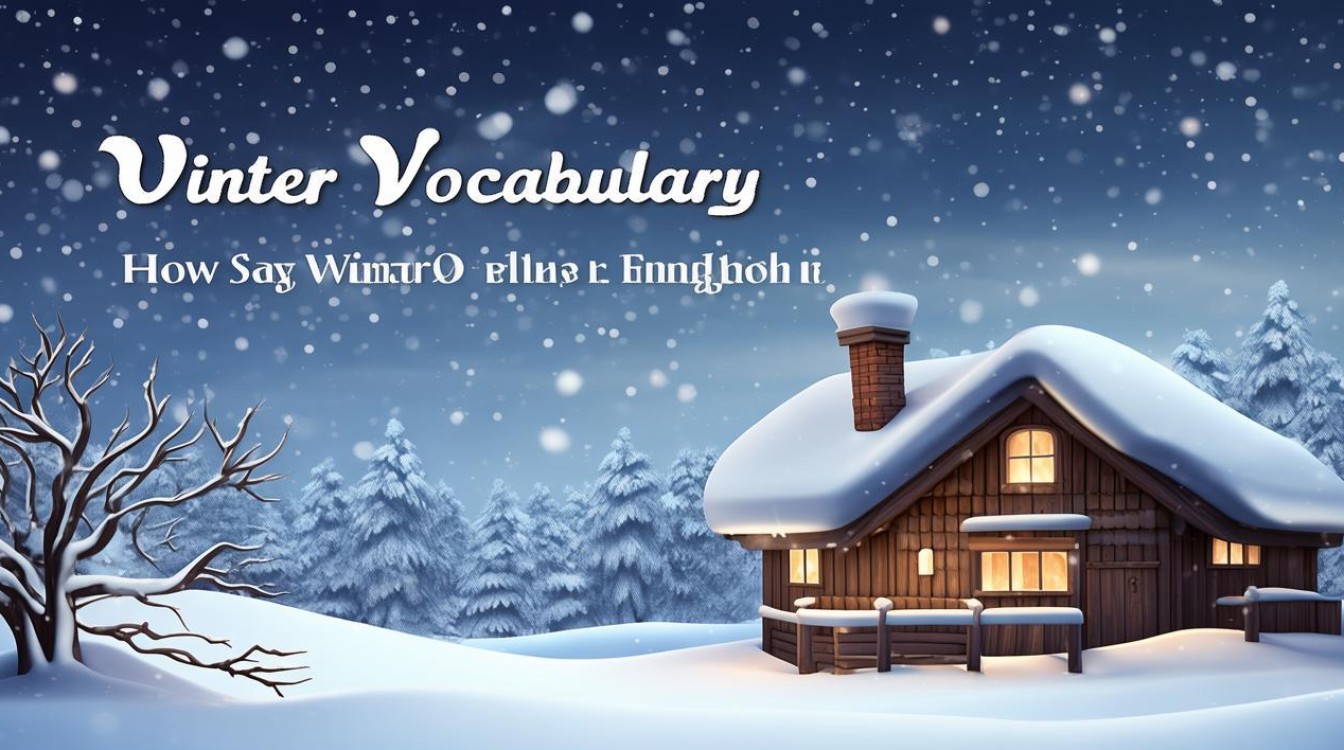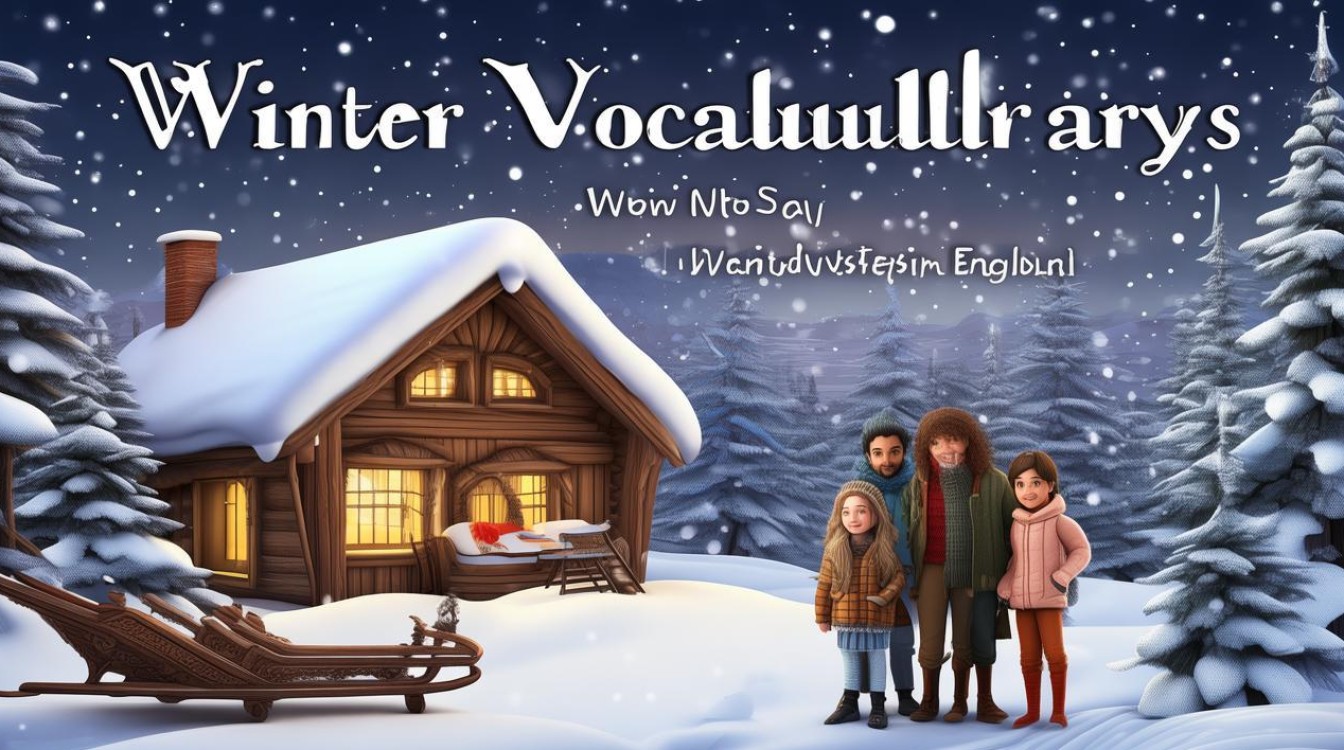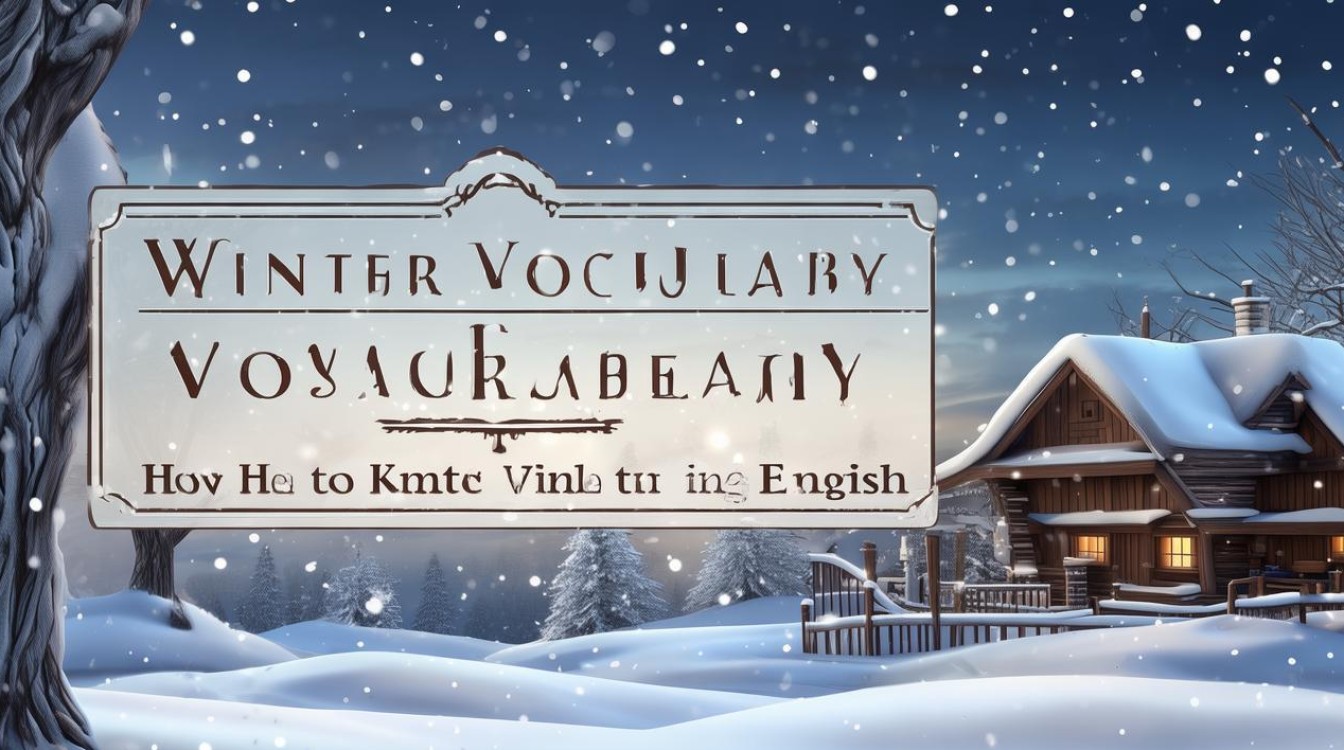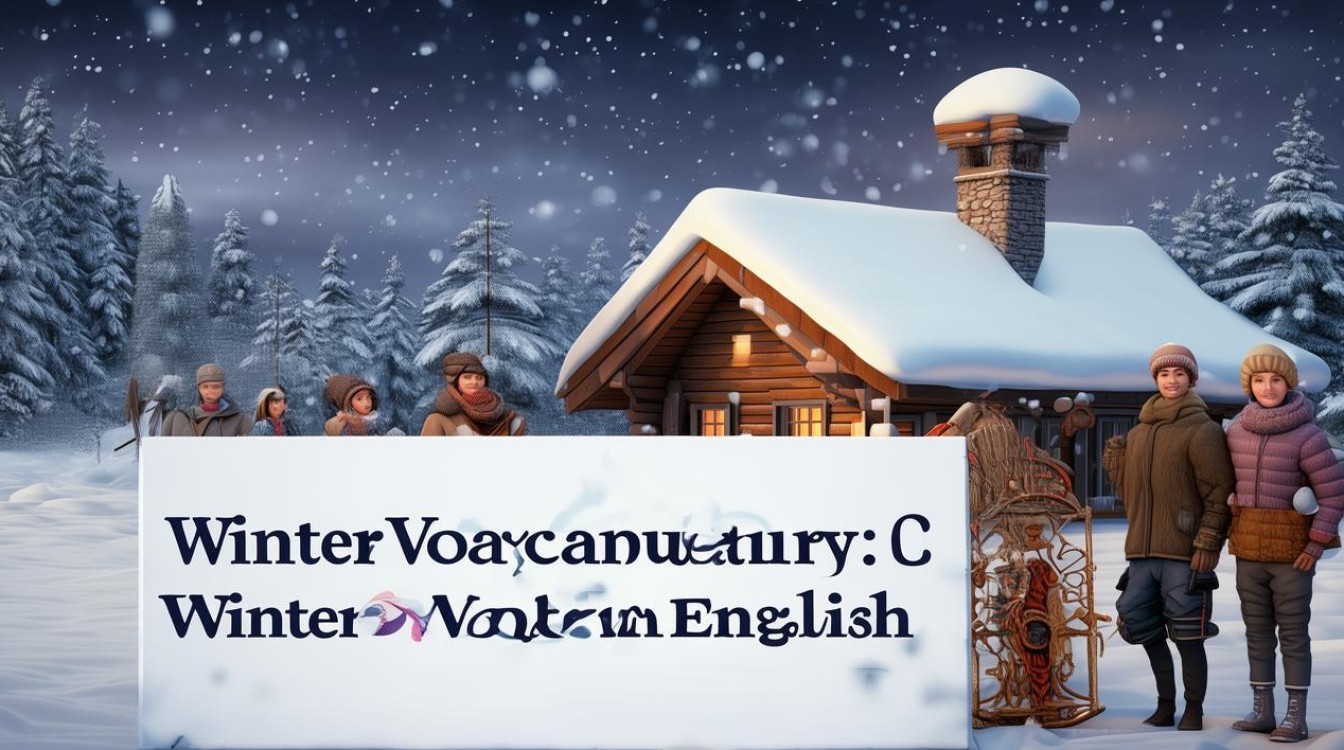Winter brings a unique charm with its crisp air, snowy landscapes, and cozy moments. Whether you're learning English or simply curious about seasonal terms, knowing the right words can enrich your conversations. Below is a detailed guide to essential winter-related vocabulary in English, covering weather, clothing, activities, and more.

Weather and Natural Phenomena
Winter weather has its own distinct vocabulary. Here are key terms to describe the season’s conditions:
- Snow – Frozen precipitation in the form of soft, white flakes.
- Blizzard – A severe snowstorm with strong winds and low visibility.
- Frost – A thin layer of ice that forms on surfaces when temperatures drop below freezing.
- Sleet – A mix of rain and snow, often creating slippery conditions.
- Hail – Pellets of frozen rain that fall during storms.
- Icicle – A hanging spike of ice formed by dripping water freezing.
- Black ice – A thin, nearly invisible layer of ice on roads, making them hazardous.
Phrases like "It’s freezing outside" or "The roads are icy" are commonly used to describe winter conditions.
Winter Clothing and Accessories
Staying warm requires the right gear. Here’s how to name winter apparel in English:
- Coat – A heavy outer garment for cold weather.
- Jacket – A lighter alternative to a coat, often insulated.
- Scarf – A long piece of fabric wrapped around the neck for warmth.
- Gloves – Hand coverings with separate fingers.
- Mittens – Hand coverings where fingers are enclosed together (warmer than gloves).
- Beanie – A close-fitting knitted cap.
- Thermals – Insulated undergarments for extra warmth.
- Boots – Sturdy footwear designed for snow or rain.
Sentences like "Don’t forget your gloves!" or "This coat is so warm" are practical examples.
Winter Activities and Traditions
From sports to holidays, winter is packed with events. Key terms include:

- Skiing – Gliding over snow on long, narrow runners.
- Snowboarding – A sport where riders descend slopes on a single board.
- Ice skating – Moving on ice using metal-bladed skates.
- Sledding – Sliding downhill on a sled or toboggan.
- Hot chocolate – A warm drink made with melted chocolate or cocoa.
- Fireplace – A structure for containing fires, often used for warmth.
- Holiday season – The period encompassing Christmas, New Year’s, and other celebrations.
Phrases like "Let’s go skiing this weekend" or "We roasted marshmallows by the fireplace" capture winter’s joy.
Seasonal Food and Drinks
Winter cuisine is hearty and comforting. Useful terms:
- Stew – A slow-cooked dish with meat and vegetables.
- Soup – A liquid dish, often served hot.
- Gingerbread – Spiced cookies or cake, popular during Christmas.
- Eggnog – A creamy, spiced holiday drink.
- Mulled wine – Warm wine infused with spices like cinnamon and cloves.
Saying "Nothing beats homemade soup in winter" reflects seasonal preferences.
Idioms and Expressions About Winter
English has many phrases inspired by the season:
- "Cold snap" – A sudden period of very cold weather.
- "Bundle up" – Dress warmly.
- "Winter blues" – Feelings of sadness during colder months.
- "Snowed under" – Overwhelmed with work (like being buried in snow).
Using idioms like "I’m snowed under with deadlines" adds fluency to speech.

Regional Variations in Winter Vocabulary
English varies by region. For example:
- UK: "Wellies" (waterproof boots) vs. US: "Rain boots."
- Canada: "Toque" (knit cap) vs. US: "Beanie."
- Australia: Winter occurs in June-August, so phrases like "Chilly for July" are common.
Understanding these differences helps in global communication.
Practical Tips for Learning Winter Words
To master these terms:
- Label household items (e.g., stick a note saying "scarf" on your scarf).
- Watch winter-themed movies or shows with subtitles.
- Practice describing winter scenes aloud.
For example: "The trees are covered in frost, and the pond is frozen."
Winter’s vocabulary is as rich as the season itself. From describing weather to naming cozy traditions, these words help articulate the magic of colder months. Whether you’re chatting with friends or writing a seasonal post, this guide ensures you’ll do it fluently.

Winter may be cold, but language keeps it lively. So next time you step into the snow, try using these words—they’ll make your English shine as brightly as a frosty morning.

